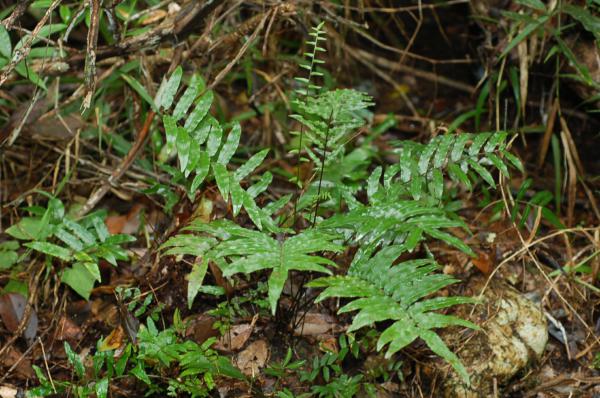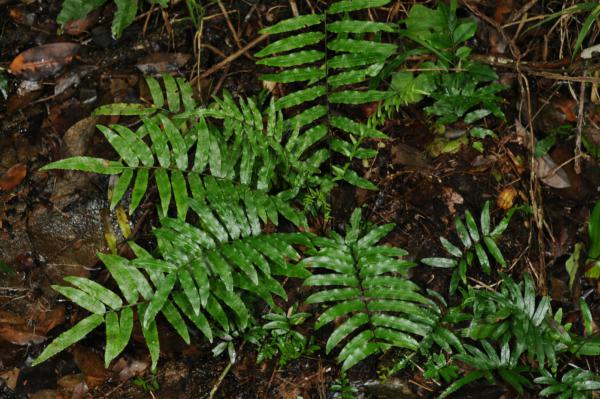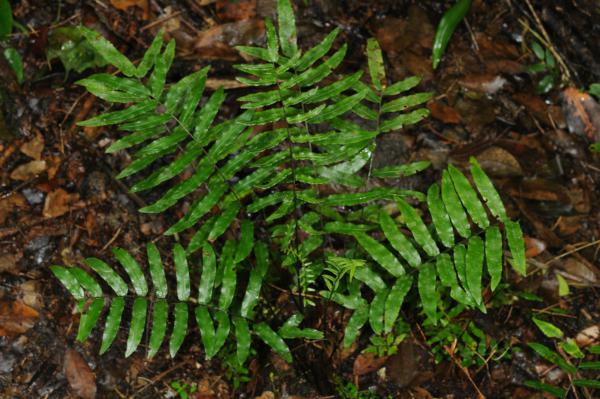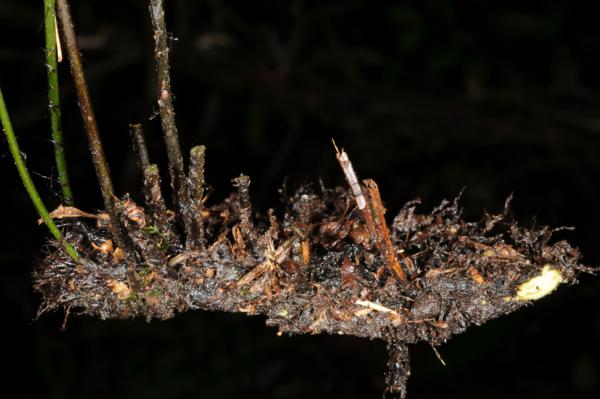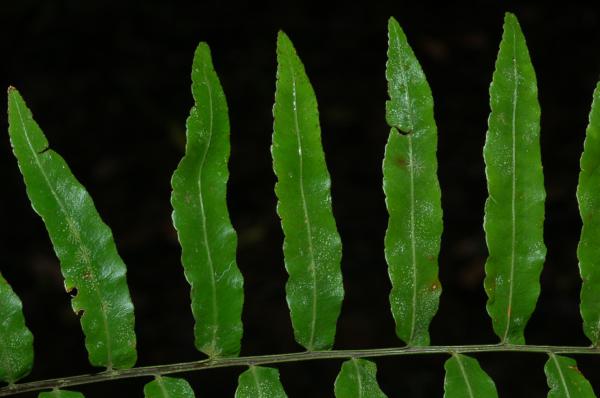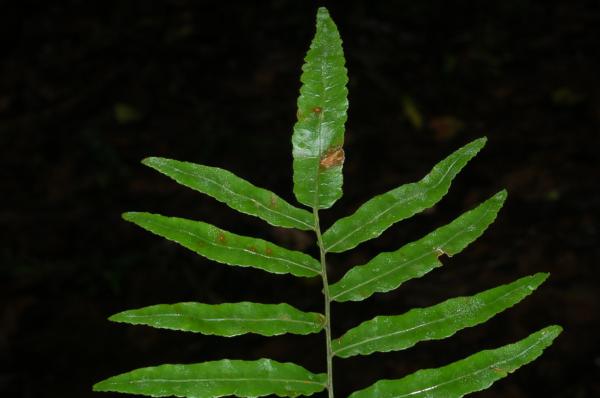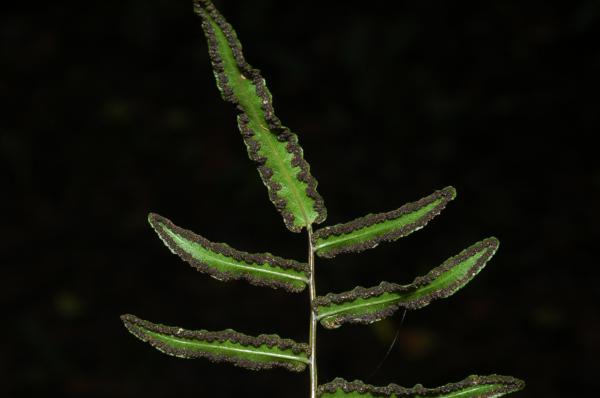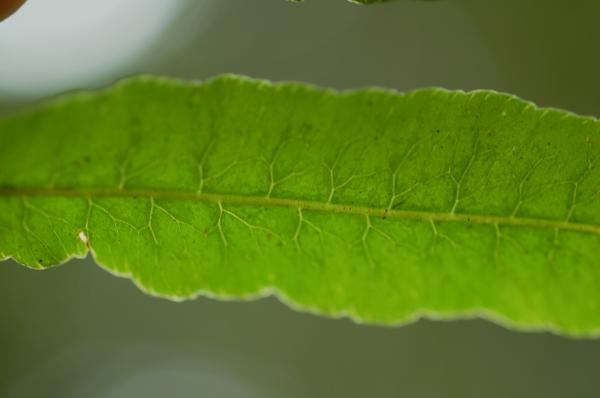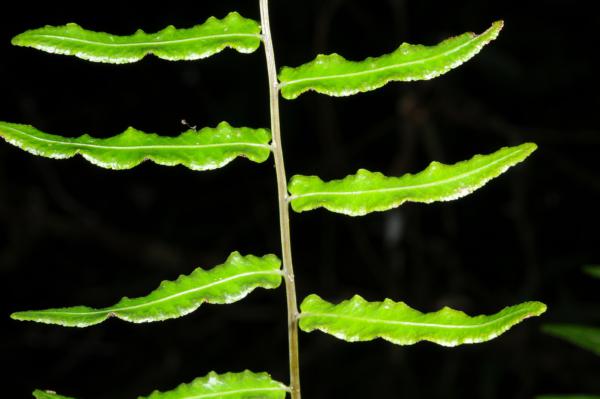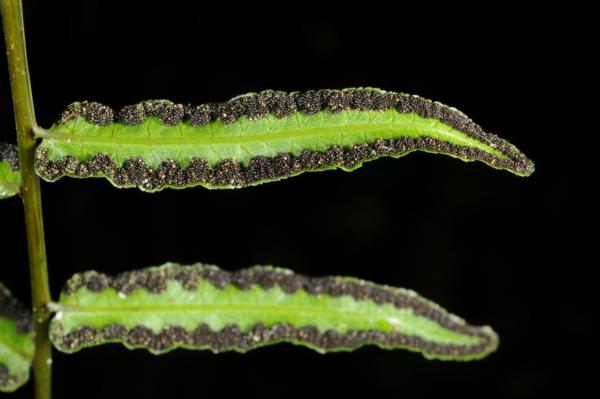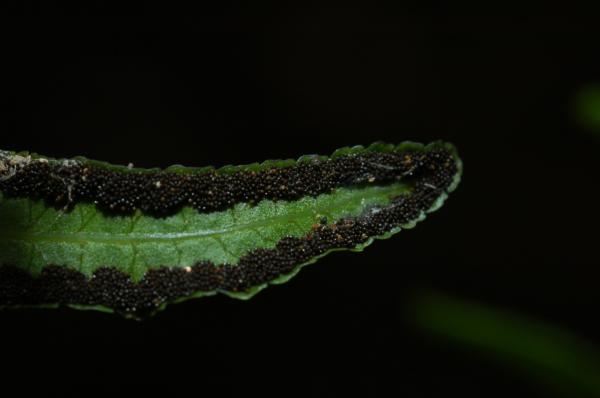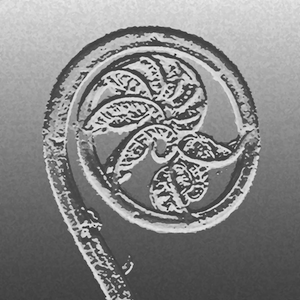
Bolbitis copelandii Ching ex C.Chr. & Tardieu
Family
Dryopteridaceae
Nomenclature
Bolbitis copelandii Ching ex C.Chr. & Tardieu, Notul. Syst. 7: 101. 1938; Tardieu & C.Chr., Fl. Indo-Chine 7(2): 434, f. 50.1 & 50.2. 1941; Tagawa & K.Iwats., SouthE. Asian Stud. 5: 91. 1967; Tagawa & K.Iwats., Fl. Thailand 3: 312. 1988; Boonkerd & Pollawatn, Pterid. Thailand: 182. 2000; Dy Phon, Dictionary of Plants used in Cambodia: 97. 2000. – Bolbitis crispatula (Copel.) Ching var. copelandii (Ching) Hennipman, Leiden Bot. Ser. 2: 159, f. 40i & 42. 1977.
Description
Terrestrial or lithophytic. Rhizome creeping or ascending, densely scaly; scales dark brown, clathrate, up to 6 by 1.2 mm, entire. Sterile frond: stipe stramineous, scaly at base, very minutely scaly upwards, 20–25 cm long; lamina oblong-lanceolate, gradually narrowing towards attenuate apex, up to 30–45 by 15–20 cm; pinnae 8–25 pairs, middle ones the largest, lanceolate, straight, slightly ascending, shortly stalked and jointed to rachis, gradually narrowing towards caudate-acuminate apex, subtruncate at anterior and cuneate at posterior bases, up to 10 by 1.7 cm, distinctly serrate in apical part, subentire or very slightly lobed in basal part, lower lateral pinnae shorter than the next above, apical pinna rarely distinct, small if any; rachis viviparous near the apex, costa glabrous, veins raised beneath, forming a row of costal areoles and costular ones in larger pinnae; subcoriaceous, light-green, reddish in dried condition. Fertile frond: lateral pinna distinctly stalked, linear with unequal base, up to 6 by 1.2 cm, shallowly lobed at margin; sporangia confined to margins and near veins, leaving broad sterile portion along costa .
Distribution in Thailand
NORTHERN: Lampang; NORTH-EASTERN: Loei; EASTERN: Chaiyaphum, Nakhon Ratchasima, Buri Ram, Ubon Ratchathani; CENTRAL: Nakhon Nayok; SOUTH-EASTERN: Prachin Buri, Rayong.
Distribution in Laos
Champasak.
Distribution in Cambodia
Kompong Speu, Ratanakiri, Siem Reap.
Wider Distribution
Indochina.
Ecology
On rather dry to moist mountain slopes or on muddy rocks in dense evergreen forests at usually up to 600 m alt.
Proposed IUCN Conservation Assessment
Least Concern (LC). This species is widespread and not under any known threats.
Notes
Used in traditional Indo-Chinese medicine as a febrifuge (Dy Phon, 2000).
Voucher specimens - Thailand
Middleton et al. 5186, Ubon Ratchathani, Phu Chong Nayoi National Park (E).
Voucher specimens - Cambodia
David et al. CL773, Ratanakiri (P).
Habit
Habit
Habit
Rhizome
Sterile pinnae
Frond apex from above
Frond apex from below
Upper surface of sterile frond
Fertile pinnae from above
Fertile pinna
Sori
Site hosted by the Royal Botanic Garden Edinburgh. Content managed by Stuart Lindsay, Gardens by the Bay, Singapore and David Middleton, Singapore Botanic Gardens. Last updated 24 January 2012
